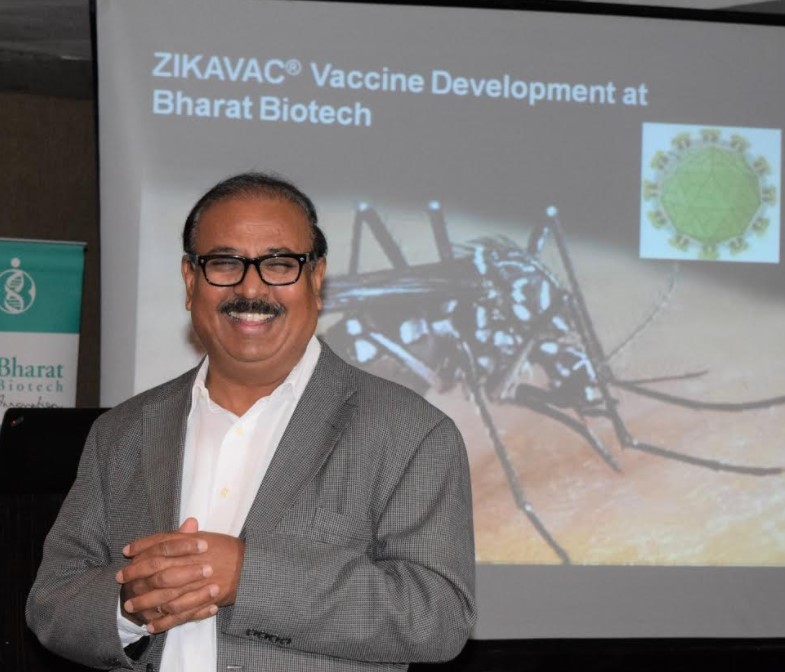Even as the Covid pandemic continues to rage, the first case of the mosquito borne viral infection Zika has been detected in Kerala. 24-year-old pregnant woman in Thiruvananthapuram who gave birth to a healthy baby on 7th June tested positive for Zika, close to 19 blood samples have been sent to NIV, Pune, out of which 13 health workers, including doctors, are suspected to be positive for Zika.
According to the World Health Organisation (WHO), Zika is a mosquito-borne virus that spreads through the bite of an infected Aedes species of mosquito named Aedes aegypti, this is the same mosquito that transmits dengue, chikungunya and yellow fever. The Aedes mosquitoes’ bite during early morning, late afternoon and evening.
The virus can be dangerous among pregnant women, and can easily transmit to her foetus. It can also spread through sexual contact, transfusion of blood and blood products, and organ transplantation. The infection can cause brain disability, neurological disorders among children and adults.
ZIKA – That Small, Hard, Deadly Bite
In 2016 Bharat Biotech’s Chairman & Managing Director Dr Krishna Ella said he and his team has been working on Zika virus for a year, and one of the vaccines has now reached the stage of pre-clinical testing in animals. While one is a recombinant vaccine, the other is an inactivated one. He also stated in the normal course, it takes 7-8 years for the vaccine to reach the market during 2016 interaction.
Currently, the Bharat Biotech’s Zika vaccine is undergoing Phase 2 trials.
In recent years, more than 90 countries have reported and experienced unprecedented resurfacing of zika virus outbreaks globally. The disease has spread vastly throughout the continents of Africa, from Asia to a Pacific Island, South America, regions of Europe, and North America.
Brazil is the hardest-hit nation, and their Ministry of Health identified more than 600 new suspected cases in early 2020. Thousands of infants in north-eastern Brazil were born with disabilities linked to the virus and their families have been fighting for their rights ever since.
Zika Travel Recommendations by CDC is, consider your travel destination and know before you go, its better you delay or cancel your travel.
The Union health ministry has already sent a six-member team to Kerala to monitor the Zika virus situation, joint secretary of the ministry Lav Agarwal said on Friday. The outbreak comes as the state is grappling with Covid-19 cases, the number of which is steady in the state, while in the rest of the country, the situation is rapidly improving. The team comprises health experts and vector-borne disease experts. The situation is under constant monitoring of the central government, Agarwal said.
What is Zika ?
Zika virus is an emerging pathogen of substantial public health concern to human beings. Although most infections are asymptomatic or present with benign, self-limited symptoms, a small percentage of patients have complications, such as congenital anomalies in the developing fetus of pregnant women infected with the virus and neurological complications (eg, Guillain-Barré syndrome). To date, there is no vaccine, antiviral drug, or other modality available to prevent or treat Zika virus infection.
The first human case of Zika infection was reported in 1952.2 Although Zika infection had been reported a decade earlier,3, 4 this infection was later identified as Spondweni virus.5 Other isolated cases of Zika infection were reported through the 1960s and 1970s.
Nonetheless, Zika virus was not recognised as a human pathogen of importance until 2007, when an outbreak of rash and fever occurred on Yap Islands and led to 49 confirmed—and 59 probable—cases of Zika virus infection in human beings.
At the time, a household survey of 557 people revealed that 412 (74%) had antibodies for Zika virus. A larger second outbreak occurred in 2013–14 in French Polynesia, involving 333 confirmed cases and 19 000–32 000 suspected cases.8 For the first time, Guillain-Barré syndrome was observed in conjunction with these infections. During the 2014–15 outbreaks of Zika virus in Brazil, public health authorities reported a noticeable increase in children born with microcephaly.
In a review by The Lancet , it was stated top research priorities should include development of a better understanding of immunity to Zika virus to establish clear correlates of protection; determination of what effect, if any, Zika vaccine-induced immune responses will have on subsequent dengue virus infection; evaluation of vaccine immunogenicity and efficacy in healthy adults and in the various subpopulations affected by Zika virus infection (children, pregnant women, women of childbearing age, and eldery people); and identification of the molecular mechanisms that underlie birth defects and neurological sequelae related to Zika virus.
According to WHO No vaccine is yet available for the prevention or treatment of Zika virus infection. Development of a Zika vaccine remains an active area of research. But with Bharat Biotech leading from the front, we hope the vaccine will be available soon.


